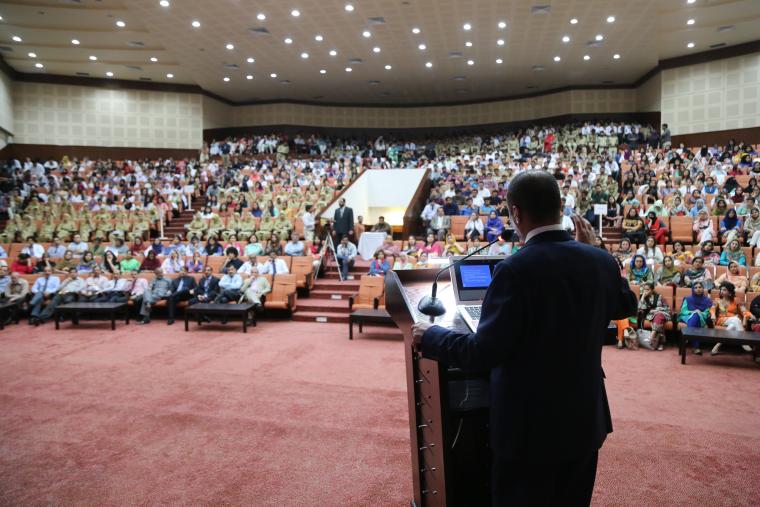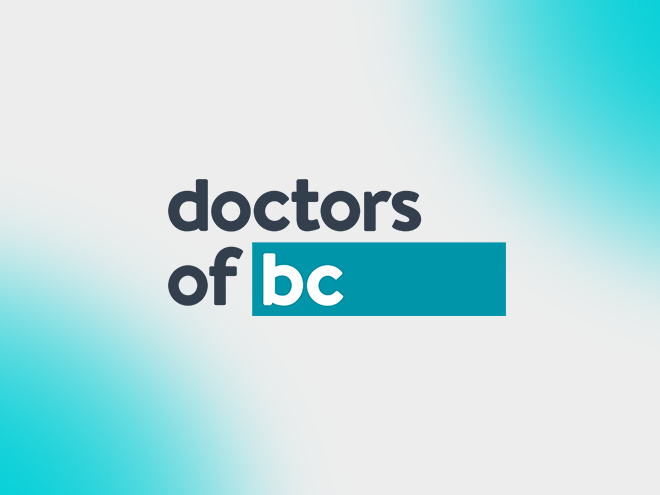 Dr Faisal Khosa (MD, MBA, TI, FFRRCSI, FRCPC, DABR, FACR) graduated from medical school in Pakistan and completed postgraduate training and board certifications in Ireland, America, and Canada. He has an MBA in leadership and equity, diversity, and inclusion.
Dr Faisal Khosa (MD, MBA, TI, FFRRCSI, FRCPC, DABR, FACR) graduated from medical school in Pakistan and completed postgraduate training and board certifications in Ireland, America, and Canada. He has an MBA in leadership and equity, diversity, and inclusion.
A passion of his, Dr Khosa leads equity, diversity, and inclusion (EDI) research projects with high school and undergraduate students from underrepresented and minority groups. Their work has resulted in over 270 peer-reviewed articles and multiple invitations to host workshops on leadership and EDI for Doctors of BC, the Canadian Conference for Physician Leadership, Vancouver Coastal Health, Fraser Health, Canadian Medical Protective Association, and more.
For this work, he and his team have received provincial, national, and international awards including the recent Michael Smith Foundation – Health Professional Investigator Competition grant (2023-2028).
We were able to speak to Dr Khosa about this important work:
Q: What is your definition of EDI and why is it important to you?
Equity, diversity, and inclusion is a set of principles and practices that promote fairness, respect, and equal opportunities for all regardless of their backgrounds, identities, or characteristics.
It is meaningful to me because it aligns with the universal values of equality, justice, and inclusivity. It recognizes the inherent worth and dignity of every person and seeks to create an environment where everyone can thrive and contribute their unique perspectives and talents.
“Of all the forms of inequality, injustice in health care is the most shocking and inhumane.” - Martin Luther King
Through thoughtful EDI practices, we can actively remove barriers, address systemic inequities, and promote a sense of belonging for all individuals.
Q: Can you talk about your process for incorporating EDI in practice?
 EDI is a continuous journey. Opposition to EDI research, advocacy, and activism can be insidious and costly, resulting in work environments that create barriers for minority groups.
EDI is a continuous journey. Opposition to EDI research, advocacy, and activism can be insidious and costly, resulting in work environments that create barriers for minority groups.
Incorporating EDI in your practice is a vital step toward fostering an inclusive and equitable environment. There are many components to promoting EDI within the workplace. These include:
- Allocating funds, ensure protected time, and provide recognition to those carrying out EDI work.
- Evaluate your institution's current practices, policies, and procedures to identify potential areas of improvement. This includes critiquing the hiring processes, promotion benchmarks, client interactions, and more.
- Create a clear vision and strategy that states your commitment to EDI and how your institution plans to incorporate it into practice.
- Encourage open and respectful communication and establish zero-tolerance policies for discrimination.
- Provide EDI training to staff to raise awareness, promote understanding, and develop skills to navigate diversity-related challenges. Training should cover topics such as unconscious bias, cultural sensitivity, inclusive communication, and allyship.
- Involve employees, clients, and other stakeholders in the EDI process. Adapt strategies and approaches to ensure your practice remains inclusive and equitable.
Q: What is the impact of EDI on the workforce and patients?
Impact on your team:
The tangible benefits of EDI include a team who are more likely to be intrinsically motivated, engaged, and efficient at their work. This results in improved creativity and innovation, as people from unique backgrounds have unique insights and problem-solving approaches. When the workforce feels valued and supported, they're much more likely to stay with the organization, thus decreasing turnover and reducing burnout. A diverse workforce also creates more opportunities to have diverse mentors and role models for employees to draw from.
Impact on patients:
Patients from different backgrounds have different approaches to navigating health care. Overall, EDI and inclusive workplaces enhance teamwork, improve health care access, foster cultural sensitivity, and ensure the provision of culturally competent care.
Q: What does culturally competent care entail?
Culturally competent care refers to health care providers’ and an organization’s ability to successfully meet the health care needs of clients from diverse cultural backgrounds. This involves understanding and respecting the beliefs, values, practices, and behaviours of all patients and folding that into how a patient navigates the system.
“There’s really no such thing as “voiceless.” There are only the deliberately silenced, or the preferably unheard.”– Arundhati Roy
It seeks to understand and respect the patients’ decision-making process so providers can deliver care that is sensitive to cultural values and circumvents assumptions or stereotypes.
 A key component of culturally competent care means adapting health care services to meet the cultural needs and preferences of patients, including dietary accommodations, traditional healing practices, or specific cultural beliefs. Involving clients and their families in decision-making and incorporating their input ensures that the provision of care aligns with the client’s cultural values and goals.
A key component of culturally competent care means adapting health care services to meet the cultural needs and preferences of patients, including dietary accommodations, traditional healing practices, or specific cultural beliefs. Involving clients and their families in decision-making and incorporating their input ensures that the provision of care aligns with the client’s cultural values and goals.
Acknowledgments
An important aspect is having a team of intrinsically motivated individuals who mentor, support and sponsor. I am fortunate to be part of an incredible team which includes:
- Dr Charlotte Yong-Hing, President of the British Columbia Radiological Society;
- Dr Ramneek Dosanjh, former President of Doctors of BC;
- Dr Sarah Barrett, radiologist;
- Dr Ka Wai Cheung, emergency medicine physician;
- Dr Sahil Chawla, resident in family medicine, UBC;
- Dr Mehr Jain, gynecology resident, University of Ottawa;
- Jeffrey Ding, medical student, UBC.
Resources for doctors to learn more about EDI:
- Provision of Culturally Competent Healthcare to Address Healthcare Disparities.
- The Intersection of Diversity and Well-Being
- Equity, Diversity, and Inclusion: Calling, Career, or Chore?
- Burnout: Turning a Crisis Into an Opportunity.
- Leadership in healthcare: a bibliometric analysis of 100 most influential publications
- DocTalks vodcast: How doctors can support equity, diversity, and inclusion and anti-racism in health care
- Doctors of BC: Our commitment to equity, diversity, and inclusion
- Doctors of BC: Resources for learning more about EDI
- Tips to harness the power of equity, diversity, and inclusion in your business



